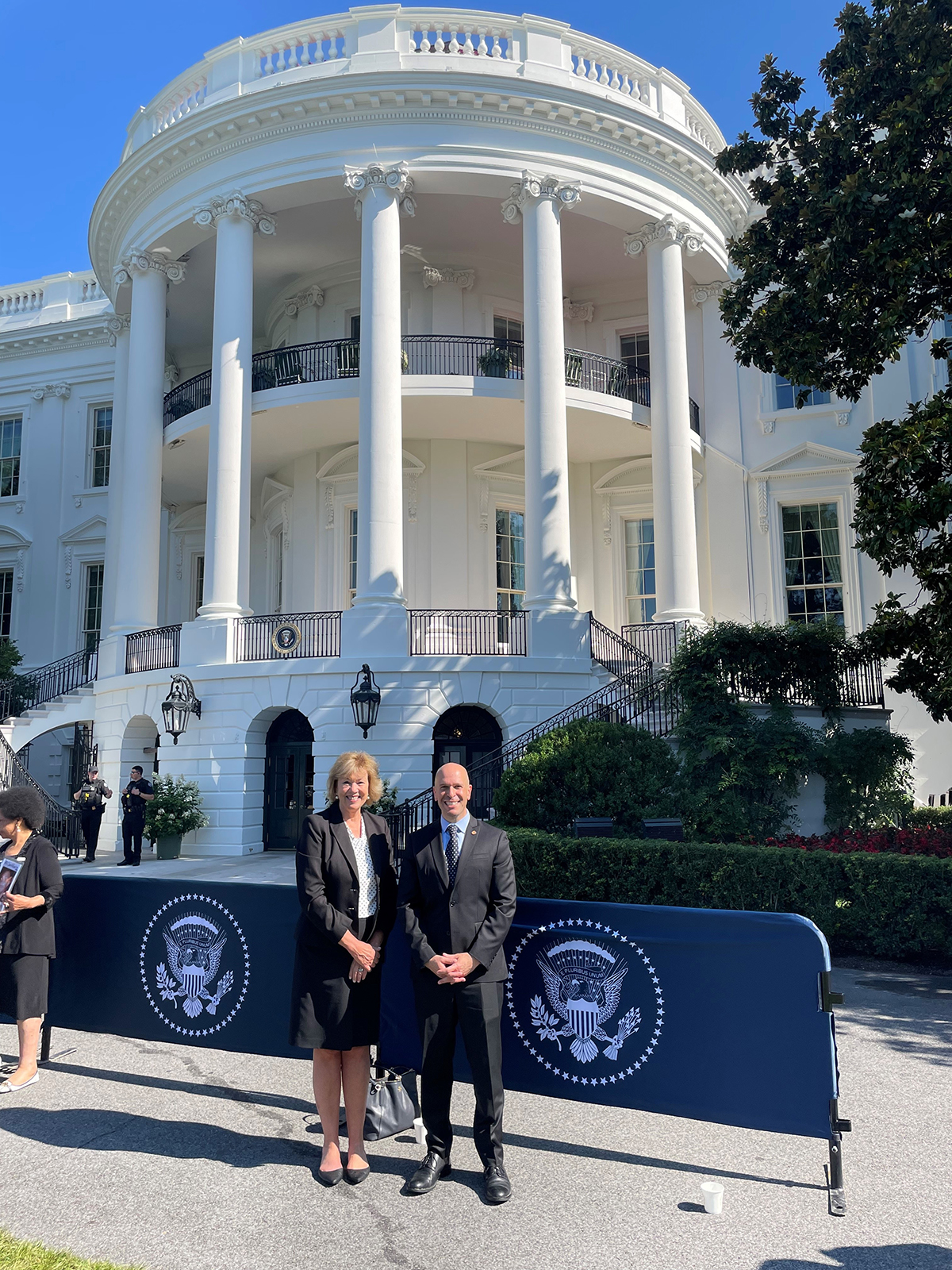- Details
- Category: Latest
HIGHWOOD —State Senator Julie Morrison celebrates the Illinois Department of Natural Resources announcement of almost $130,000 in grants for land trusts in Lake County to support land protected by the Illinois Nature Preservation Commission.

“Our nature preserves are a point of pride, and to give them the support that they need is vital to maintain their high quality stewardship,” said Morrison (D-Lake Forest). “They serve not only as a way to preserve our environment, but as ways for our children to learn about nature.”
Two area Open Lands Associations have been given grants to support their stewardship efforts. Lake Bluff Open Lands Association will receive nearly $60,000 to hire interns and contractual services to control invasive species, remove undesirable trees, and conduct controlled burns which are vital in preservation at Skokie River Prairie Land and Water Reserve. The Lake Forest Open Lands Association will receive just over $70,000 to purchase equipment, supplies, and contractual assistance to improve natural community structure and diversity at Skokie River Nature Preserve and Middlefork Savanna Nature Preserve.
“It is important to get the right tools to the right people,” said Morrison. “Environmental stewardship is a vital step to ensure our future generations have a clean and healthy environment.”
Stewardship is the responsible use and protection of the natural environment through preservation and sustainable practices to enhance ecosystem resilience. In recent years the stewardship needs at natural areas throughout Illinois have outpaced the ability to deliver these services to natural areas permanently protected in the Illinois Nature Preservation Commission system.
More information about the Illinois Natural Areas Stewardship Grant Program can be found on the Illinois Department of Natural Resources website at https://bit.ly/stewardshipgrants.
- Details
- Category: Latest

- Details
- Category: Latest
LAKE FOREST – State Senator Julie Morrison announced Friday that eight school districts in the 29th Senate district will receive $50,000 each for maintenance and infrastructure projects through a grant from the Illinois State Board of Education.

“Schools in Lake and Cook County will receive this funding to improve school infrastructure and serve students more effectively,” said Morrison (D-Lake Forest). “Well-ventilated classrooms, updated facilities like libraries, and clean and well-lit learning spaces are critical for our students’ health and success.”
School districts in the 29thDistrict to receive a combined $400,000 for infrastructure improvements include:
- Bannockburn School District 106 - $50,000
- Deerfield School District 109 - $50,000
- Lake Bluff Elementary School District 65 - $50,000
- Lake Forest Community High School District 115 - $50,000
- Lake Forest School District 67 - $50,000
- Northbrook Elementary School District 27 - $50,000
- River Trails School District 26 - $50,000
- Wheeling Community Consolidated School District 21 - $50,000
In the latest announcement, a total of $30 million in 2022 School Maintenance Grants was distributed to districts across the state. To be eligible for the grants, applicants were required to match the state funds and commit to completing proposed projects within two years.
Projects made possible thanks to these grants include updates to heating and cooling, improvements to ventilation, increased accessibility throughout buildings and more.
A full list of grantees and awards can be accessed on the ISBE website.
- Details
- Category: Latest
WASHINGTON, D.C. – One week ago, State Senator Julie Morrison and hundreds of Highland Park residents ran for their lives as a gunman opened fire on a 4th of July parade, killing seven and wounding dozens of others.

“As days have passed, each of us in the community have felt pain. In a town of about 30,000 people, almost everyone knows someone who has been affected,” said Morrison (D-Lake Forest). “No matter where you go in the city, you’re reminded of the tragic loss of life. Our town is now on the map with Buffalo, Uvalde and so many other towns across this nation that have been stricken by heinous gun violence in recent months.”
In the days since, Morrison has worked around the clock to bring more awareness to the state’s Red Flag Law – which she championed in 2018 – and discuss potential legislative action – both federally and at the state level – which she believes will put an end to the gun violence epidemic taking place across the nation. On Monday, Morrison was invited to the White House for a ceremony regarding the signing of the bipartisan Safer Communities Act.
“In today’s America, just as the nation begins to heal from one attack, another ensues. How much longer can we sit back silently and only offer thoughts and prayers without real, tangible solutions,” Morrison said. “We must work together – both at the national and state level – on a solution to end these vicious attacks.”
The law – signed by President Joe Biden – toughens requirements for young people to buy guns, denies firearms to more domestic abusers, and helps local authorities temporarily take weapons from people judged to be dangerous.
Following the recent Highland Park tragedy, Morrison is reminding Illinoisans of the state’s Red Flag Law, which allows family members and law enforcement officials who have concerns that someone is a threat to themselves or others the right to ask a judge to temporarily remove their guns. If a judge grants the restraining order, law enforcement may seize the respondent’s firearms for up to six months and prevent them from purchasing additional weapons during that time period.
“The Red Flag law has the ability to stop mass shootings by temporarily keeping guns out of the hands of people who pose a threat to themselves or others,” Morrison said. “If you are concerned about the behavior of a loved one, I encourage you to contact local law enforcement.”
While Morrison works toward solutions to combat gun violence, she also continues to think and worry about the families impacted by the July 4th attack. Any person interested in donating to the Highland Park victims and their families can do so through the Highland Park Community Foundation July 4th Response Fund here.
More Articles …
Page 23 of 43





